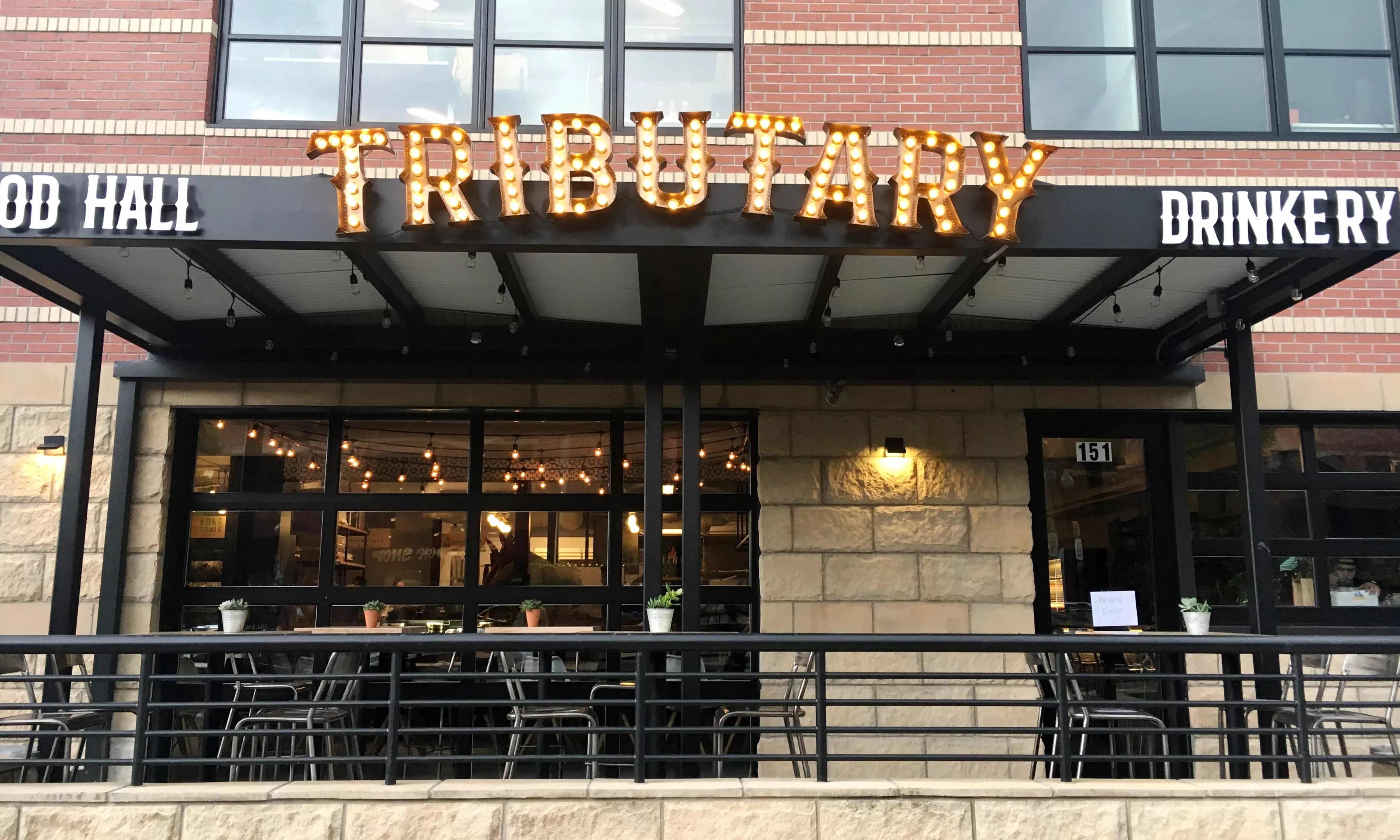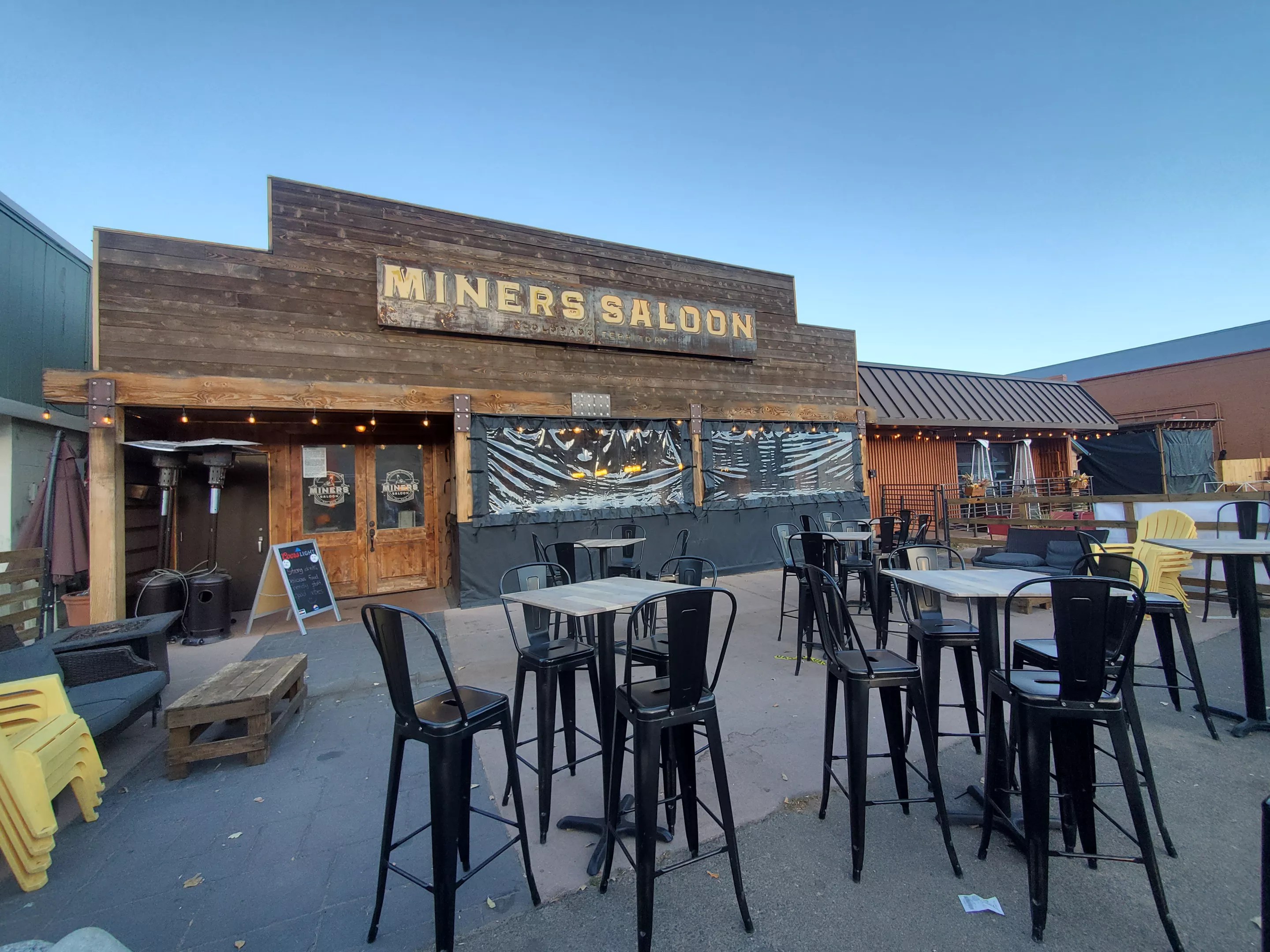
Abejas/Instagram

Audio By Carbonatix
Golden restaurateurs marched into an April 11 meeting of the Golden City Council ready for a fight, as councilmembers were set to hear public comments on amendments to the town’s outdoor dining ordinance before taking a vote. And while that vote was postponed until April 25, a compromise was reached – for the 2023 season, at least.
Ordinance No. 2205 is an amendment to Chapter 4.90 of the Golden Municipal Code regulating outdoor seating and service permits. During the pandemic, the ordinance was quickly passed to allow restaurants to expand seating into public right-of-ways, parking lanes, lawns, etc. However, with the pandemic in the rearview mirror, city council has been taking steps to formalize the policy.
In March, restaurant owners began receiving emails from the Public Works Department with a warning that the fees they pay for participation in the expansion program, which had been just $50, would be going up. As a result, a March 24 memo stating that the increase would be in the range of $2,000 to $3,000 wasn’t a big surprise. However, at a March 31 meeting with Public Works, it was announced that the increase would actually be somewhere between $5,000 and $10,000.
This news, which came less than a month before the program was set to launch, sparked some serious backlash from owners, including Woody’s Wood-Fired Pizza managing partner Jon Bortles, who called the move a “bait-and-switch” when Westword spoke to him last week.
The April 11 city council meeting was the first time city staff presented the councilors with exact hard costs for running the program, which totals $2,550 for each enclosure for the season. That would be covered by a $300 application fee, $1,500 for set-up and tear-down, and $750 to provide and install ADA ramps.
In addition, the city proposed right-of-way usage fees based on a structure similar to “things like dumpsters and for staging materials or equipment” that take up parking spaces or block street access. Depending on the dollar-per-square-footage rate, the proposed right-of-way usage fees are what could drive the total payment as high as $10,000.
According to city staff, the proposal to charge right-of-way fees was partially inspired by what other cities, notably Boulder, have done with their outdoor dining programs.

Tributary Food Hall opened on August 2, 2019.
Mark Antonation
“I was on the board of downtown Boulder, and I was on a committee that was tasked with recommending a solution for outdoor dining. That solution-finding process went on for some insane amount of time,” recounted Josh Dinar, managing partner of Tributary Food Hall.
He described an arduous process that included fact-finding trips to other cities, tediously measuring enclosures and gridlocked back-and-forth. “And while this was happening, Golden went out, bought enclosures and said, ‘Come out onto the streets and let’s figure this out together,” Dinar added. “One of the main things that I said throughout the entire process in Boulder was, ‘You need to look at what Golden is doing.’ So to now hear that we’re looking at what Boulder is doing is disheartening.”
Councilor Casey Brown agreed that right-of-way fees didn’t make sense in this particular situation, and that it would be illogical to consider hypothetical parking fees as lost revenue since downtown Golden currently has free parking on most evenings and weekends. “I don’t think that a right-of-way fee based on closure for putting a dumpster or closing when you’re doing construction is the right way to think about it,” he said.
“Right-of-way fees were developed for non-tax revenue-earning use,” added Stephen Gould, who owns Golden Moon Distillery and Golden Moon Speakeasy with his wife, Dr. Karen Knight. “What you need to consider when you make your decision is that charging us a right-of-way fee along with collecting sales tax is functionally double taxation.”
Many argued that a vibrant, busy downtown benefits the city more than just the direct 3 percent sales tax collected from those businesses. “The city will benefit from the additional consumer traffic, both resident and non-resident, that comes into downtown Golden to enjoy the outdoor dining,” said Gould.
Councilor Paul Haseman argued, “What I’m trying to do is what’s in the best interest of the city. … Those people that come to those restaurants probably are going to wander down the street and go into some of the other establishments. So to the extent we have outdoor dining, it’s benefiting everybody – all those businesses and the public that wants to use it.”
Some even asked for the outdoor dining concept to be taken further. “I moved here six years ago, and the reason my wife and I chose to live here, specifically downtown, was so that we could enjoy all the amenities that we all have come to value within walking distance,” said Golden resident Dennis Van Valkenburgh. “What [downtown Denver and Boulder] have all done is eliminate automobile traffic on their main streets of downtown, turned their downtown into walking malls – something that we don’t seem to have considered or found feasible.”

In the summer of 2022, Miners Saloon set up outdoor seating in its back alley.
Molly Martin
This argument led to more pushback on the proposed right-of-way usage fees, but also the hard costs. “Passing on the [ADA ramp] cost to businesses seems an interesting decision, because you’re not passing the structure on to the businesses,” noted Golden resident Erick Lord. “And the city attorney has advised that the ADA ramp is there for city purposes, not for business purposes. … So if the city is going to mandate and they’re going to be able to reap the benefits of that year over year, why pass the cost on?”
The timing of the announcement about increasing fees was a main point of contention. “We felt ambushed by the fee structure so close to [when the] program was supposed to be starting here in six days. And it was news to us to hear tonight that you aren’t going to make a decision tonight until after the program’s supposed to start,” said Brandon Bortles, owner of Abejas and Nosu Ramen. “If we go above and beyond the fixed fees, the hard costs that you’re seeing, very few of us are going to participate. And I would hate to see us go from trying to make revenue to killing a program that was a win-win for this community.”
Jennifer Thoemke, owner of Cafe 13 and Gold Mine Cupcakes, asked, “Who are you representing? Are you representing us – businesses that need to have your support, that are increasing sales tax dollars, that are creating a vibrant community? Are you representing us? Are you representing the residents who, 80 percent of them say they want the patio program?”
Councilor Bill Fisher aired his own frustrations. “I don’t [think] that Instagram campaigns are exactly the way to try and create cooperation and build trust in the city government that we all rely on for Golden,” he said, referring to recent posts from some restaurants on the issue.
And seemingly in direct response to Thoemke, Mayor Pro Tem JJ Trout said, “Of course I represent businesses. I represent businesses in Golden and I represent people who pay sales tax, and I also represent the businesses in South Golden,” adding that it is the council’s fiscal responsibility to benefit all Golden taxpayers equally.
“It’s not like the city council’s sales tax, right? It’s for all the residents. Everyone pays into taxes who come here, and we use that to make Golden better. And we can choose to either invest in the economic vibrancy, or maybe it’s affordable housing, or maybe it’s creek management,” explained Trout. “I was elected for District One, south of Golden, so when I think about where we use our tax-dollar money in order to benefit Golden, I have to think, what’s the cost to these other businesses who aren’t able to participate? Not just downtown, but also throughout Golden, and especially in my district.”
“This isn’t a program available to all of our small businesses downtown. Some do not have street frontage, or they have city-installed planters in front of their street and not a parking space,” pointed out Mayor Laura Weinberg. “Yes, if the city’s going to make 3 percent sales tax, the rest of that 97 percent you’re making on those tables are tables that weren’t there, so it does expand the business. … The fairness is to say that you will pay the costs of the program rather than the city subsidizing the cost.”
Councilor Rob Reed echoed both Trout and Weinberg’s point on the fairness of taxpayers subsidizing downtown, but added, “I also want to tell you guys, I am so sorry about the timing of the fee discussion. It looks bad, it feels bad from up here. I know it feels bad down there.”
“Having those sorts of communications come last minute is quite disheartening. It is hard to budget for those types of enclosures, and I would ask that the decision-making be fast,” said Alissa Mattson, owner of Kona Bowls Superfoods. “We expected decisions to be made tonight, as enclosures are supposed to be going up in a few days.”
While the councilors were unable to have a final vote on the fee structure on April 11, they did consult with the city attorney for thirty minutes in search of a workaround. Ultimately, it was decided that they could amend the ordinance to contain language for the 2023 season to have a “not-to-exceed” threshold.
From there, the councilors had to decide what the threshold was. It was a unanimous decision to waive the right-of-way fees for this season. They also considered a couple of options to reduce the hard costs, such as allowing staff’s discretion to waive the ADA ramp requirement and/or amortizing the $750 cost of the ADA ramp over several years. They also decided to approve the outdoor dining ordinance with an amendment that reads “…and for the 2023 year shall not exceed $2,050.”
On April 25, the city staff will present councilors with analyses on different fee structures, and the final vote will be taken. While the limit will make the program more affordable this season, costs for the program in the future are still to be determined – but at least businesses will have much more time to plan.